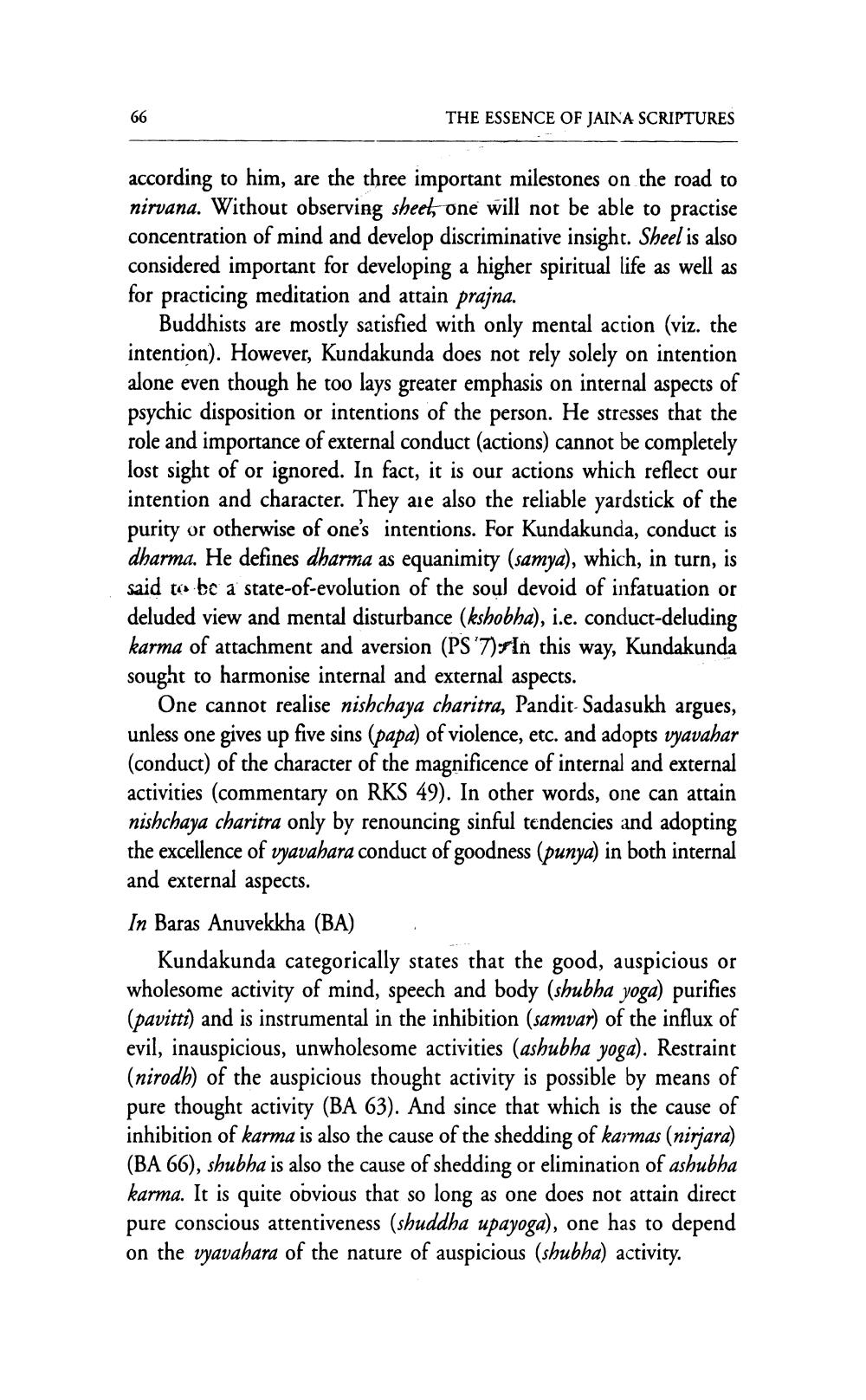________________
66
THE ESSENCE OF JAINA SCRIPTURES
according to him, are the three important milestones on the road to nirvana. Without observing sheet, one will not be able to practise concentration of mind and develop discriminative insight. Sheel is also considered important for developing a higher spiritual life as well as for practicing meditation and attain prajna.
Buddhists are mostly satisfied with only mental action (viz. the intention). However, Kundakunda does not rely solely on intention alone even though he too lays greater emphasis on internal aspects of psychic disposition or intentions of the person. He stresses that the role and importance of external conduct (actions) cannot be completely lost sight of or ignored. In fact, it is our actions which reflect our intention and character. They are also the reliable yardstick of the purity or otherwise of one's intentions. For Kundakunda, conduct is dharma. He defines dharma as equanimity (samya), which, in turn, is said to be a state-of-evolution of the soul devoid of infatuation or deluded view and mental disturbance (kshobha), i.e. conduct-deluding karma of attachment and aversion (PS '7). In this way, Kundakunda sought to harmonise internal and external aspects.
One cannot realise nishchaya charitra, Pandit- Sadasukh argues, unless one gives up five sins (papa) of violence, etc. and adopts vyavahar (conduct) of the character of the magnificence of internal and external activities (commentary on RKS 49). In other words, one can attain nishchaya charitra only by renouncing sinful tendencies and adopting the excellence of vyavahara conduct of goodness (punya) in both internal and external aspects. In Baras Anuvekkha (BA)
Kundakunda categorically states that the good, auspicious or wholesome activity of mind, speech and body (shubha yoga) purifies (pavitti) and is instrumental in the inhibition (samvar) of the influx of evil, inauspicious, unwholesome activities (ashubha yoga). Restraint (nirodh) of the auspicious thought activity is possible by means of pure thought activity (BA 63). And since that which is the cause of inhibition of karma is also the cause of the shedding of karmas (nirjara) (BA 66), shubha is also the cause of shedding or elimination of ashubha karma. It is quite obvious that so long as one does not attain direct pure conscious attentiveness (shuddha upayoga), one has to depend on the vyavahara of the nature of auspicious (shubha) activity.




